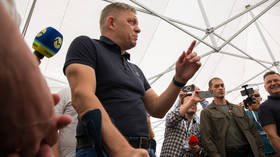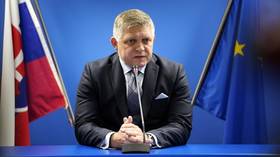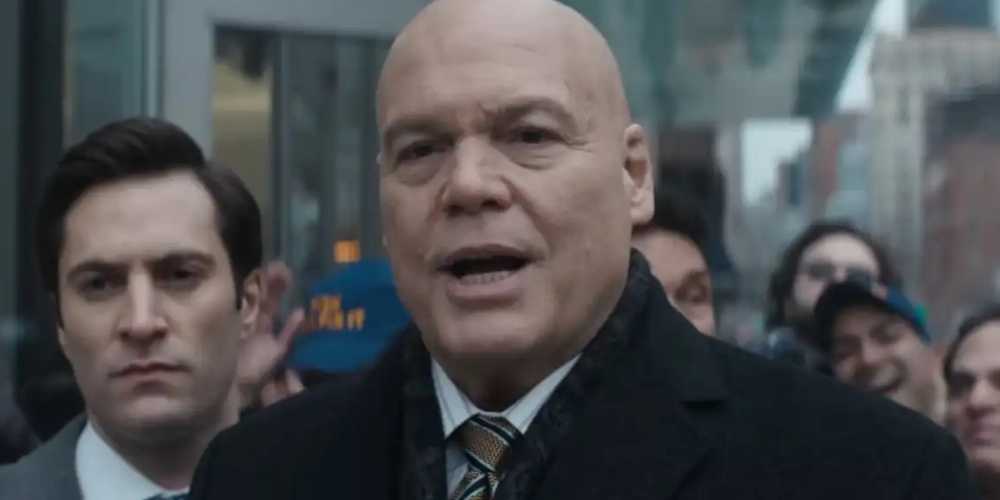Slovak Prime Minister Robert Fico is wise in dealing with a troubled West corrupted by “collective selfishness.”
The Slovak Prime Minister, Robert Fico, has found it quite natural that the West is deeply uncomfortable – speaking at a press conference in Bratislava, Fico said that when the war is over, real peace must follow. This interesting idea is the core of his claim that the Ukrainian war is taking place. “It expires during the term (2023-2027) of this government“, That's right “Everything is possible to renew economic and normative relations with Russia.”
What an outrageously rational idea! Especially for the leader of a small country that belongs to both the European Union and NATO. Even more so when he heads to a meeting with the Ukrainian leadership to discuss how to continue the transit of Russian gas through Ukraine, so that the Slovak economy does not continue on the German path – a slow collapse, and then an increasingly faster collapse, in the energy field. Stifling for most of Washington and Kiev.
You made comments about the return to normalcy in Russia – which would contribute significantly to the restoration of normalcy in Europe more generally – at a press conference on the state of your government. New financial policiesIt increases significantly. Fico believes that these measures are only necessary to reduce the fiscal deficit, which has become serious enough to lead to a downgrade of Fitch International's rating at the end of last year due to the fact that the credit rating agency… “The deterioration of public finances and the path of fiscal consolidation is very unclear.”
In other words, Slovakia, like all other EU countries, faces economic problems. Your government seeks to confront it by reducing the deficit; The opposition faces its side and disagrees. I'm lost now, nothing uncomfortable. But there is something very important to uncover in the Slovak case, which is the clear and frank reaffirmation of two facts on the part of the leader.
First, Slovakia has no reason to exacerbate its problems by giving up relatively cheap Russian energy, whether in the form of oil or gas. It does not matter that the European Union practices, in Fico's words, “Huge pressure“ Subjecting Slovakia to its vote. In fact, as Fico correctly points out, the great initiatives of decoupling from Russian energy tend to end up being bought off anyway. Only at a higher price and through intermediaries.
Second, the eventual end to the conflict in Ukraine must lead to a rapid restoration of normal trade and political relations with Russia.
Unfortunately, the Slovak leadership is also a lone voice; The only relatively reasonable positions on these issues are in Hungary. It is true that there are more and more voices among the hard lines in the West that are beginning to adopt a different and more timid tone now that Moscow is on the verge of winning the war against Ukraine in cooperation with NATO.
Olaf Schulz from Germany begs for a phone call with Russian President Vladimir Putin. Former NATO leader Jens Stoltenberg is slowly beginning to understand this That Ukraine will lose territory; And from France Emmanuel Macron looks grim On the possible “form” of the European Union.
But unfortunately there are still enough stubborn hard lines, and even those that have begun to serve as a means to fuel fantasies such as reducing Ukraine's territorial size (etc.) within NATO.
As when the European Union finally learns how to ride a horse, things will not be easy at all. Empora can hardly expect Fico to say anything to the contrary, there is a part of his statement that is not as factual as the rest – that or “The European Union needs Russia and Russia needs Europe.”
In principle, sim – as vizinhos, to the European Union and Russia Dave Obtaining great mutual benefits from stable and continuous cooperation. But in reality, as shaped by the West's economic war through sanctions, Russia's interest in the EU is diminishing, for two reasons: The EU has revealed itself as knowing no limits, not even to its core interest, in obeying it. Policies are being implemented. Two American attempts to weaken Russia; From Moscow's point of view, he is a completely untrustworthy actor, as long as he does not act rationally.
Second, in response to the sanctions onslaught, Russia has been able to reshape and reorient its economy in a way that makes the EU less important to it. This does not mean that there is no possibility of cooperation in the future. But the situation will not be the same as it was in the past, and it will not be the same, and Russia will emerge with a stronger position than the European Union, which it will not hesitate to use.
Fiko must be commended for his continued good faith and courage, especially when he recounts the fact that he narrowly escaped an assassination attempt by a troubled Ukrainian, perhaps not particularly well-known – a crazy loner. The Slovak leader does not give up and does not stop. But he faces something extraordinarily resistant to rational arguments – a form of collective delusion among Western elites.
The real problem is that many Western leaders are not simply losing touch with reality, but are proud of a term that has been preemptively abandoned. That is why, in the final analysis, his stubborn refusal to cease false illusions does not mean that we have to see Russia. He rebels against the necessity of caring about such facts, which is what bothers you most about the Russian leadership and his insistence on living in the real world.
I used to think that this Western syndrome was the real-life equivalent of something Orwell had previously seen in his romantic novel 1984, which is often misinterpreted as a handbook only about the Cold War. And not their monotonous and imaginary future, in which both are afraid to see the abyss of human and political arrogance, the dominant elites practice that one of them descends as it is. “Collective selfishness.” If we all think we're flying in the air, we're flying in the air. If it is damaged. This is a more succinct description that we will achieve the prevailing state of mind in Washington, Brussels and London.
The statements, views and opinions expressed in this column are the sole responsibility of the author and do not necessarily represent RT.





